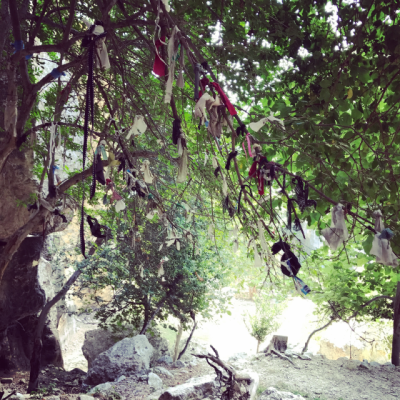Abstract
'Memory' has been predominantly theorised in its human associations, through studies of subjectivity, the psyche, and their social contexts and extensions. And memory's entanglements in histories and aftermaths of mass violence have been significantly explored through the concepts of trauma, loss, and melancholia, all terms referencing human interiorities as situated in past experiences of political violence, in their ongoing reverberations. In the lecture, Navaro explore memory's 'more-than-human' dimensions, proposing to contribute to human-centred memory studies through an attentiveness to memory's inscription in 'non-human' spaces and materialities, including its 'supra-human' dimensions incorporating the supernatural.
The story of Musa Dagh in south Turkey, where a major defence was staged by Armenians against the Ottoman army's genocidal onslaught in 1915, lies at the heart of the lecture, ethnographically trailing through this mountain's current and contemporary state.  She argues, by reference to her work in Musa Dagh, in addition to the anthropological and historical, that an archaeological and geographical imagination are required in a study of memory in the aftermath of genocide that incorporates its 'more-than-human dimensions.'
She argues, by reference to her work in Musa Dagh, in addition to the anthropological and historical, that an archaeological and geographical imagination are required in a study of memory in the aftermath of genocide that incorporates its 'more-than-human dimensions.'
The lecture concludes with an analysis of memory in its multiple dimensionality, including the human, the non-human, and the supra-human, in the aftermath of genocide.
Yael Navaro
Yael Navaro is Professor of Social Anthropology at the University of Cambridge, UK, where she has been teaching since 1999. She is the author of Faces of the State: Secularism and Public Life in Turkey (Princeton University Press, 2002), The Make-Believe Space: Affective Geography in a Postwar Polity (Duke University Press, 2012), and the co-edited volume Reverberations: Violence Across Time and Space (University of Pennsylvania Press, 2021), in addition to many articles in leading anthropological journals.
She is known for her work on materiality and affect in the aftermath of violence, among many other research areas, and her lecture builds on fieldwork conducted in south Turkey under a grant from the European Research Council, "Living with Remnants: Politics, Materiality and Subjectivity in the Aftermath of Past Atrocities in Turkey," which she led as Principal Investigator.
